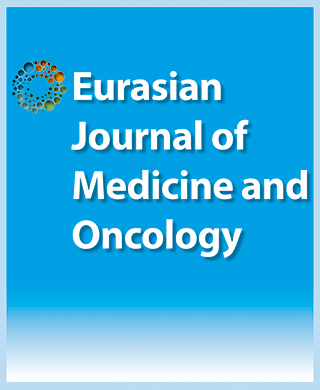

Anticancer Activity of Biotin Polyoxomolybdate Bioconjugate
Mahnaz Sadat Hosseini1, Shaghayegh Haghjooye Javanmard2, Leila Rafiei3, Amir Ali Hariri3, Nasim Dana2, Mahboubeh Rostami31School of Pharmacy and Pharmaceutical Sciences, Isfahan University of Medical Sciences, Isfahan, Iran, 2Applied Physiology Research Center, Cardiovascular Research Institute, Isfahan University of Medical sciences, Isfahan, Iran, 3Department of Medicinal Chemistry, School of Pharmacy and Pharmaceutical Sciences, Isfahan University of Medical Sciences, Isfahan, Iran,
Objective: Polyoxometalates (POMs), polyanionic metal clusters, have been well recognized for their anticancer activity in recent decades. Despite their potential anticancer activity, normal cell toxicity is one of the pressing issues that prevent their further clinical applications. In this work, we synthesized a new bio-conjugate based on POM and biotin. Methods: We used biotin as a bio-molecule to control the cytotoxicity of POM on healthy cells and simultaneously increase the toxicity on cancerous cells. We synthesized the biotin derivative of POM via an amidation between the two molecules of biotin and amine groups on polyoxomolybdate. We approved the final structure using different spectroscopic data. We studied the cytotoxicity activity in-vitro using MTT protocol. We chose breast carcinoma cells (MCF-7) and hepatocellular carcinoma cells (HepG2) in comparison to the human umbilical vein endothelial cell (HUVEC). Results: Results showed that biotin could improve the anticancer activity of polyoxomoybdate (IC50; 0.082 mM) on MCF-7 and (IC50; 0.091 mM) on HepG2 cells. Furthermore, the biotin-polyoxomolybdate conjugate showed lower toxicity on healthy cells versus the parent polyoxomolybdate and the Cis-platin as an approved drug. Conclusion: Thus, we introduce promising novel POM bioconjugate, which can be further assessed in pre-clinical studies.
Cite This Article
Hosseini M, Javanmard S, Rafiei L, Hariri A, Dana N, Rostami M. Anticancer Activity of Biotin Polyoxomolybdate Bioconjugate. EJMO. 2020; 4(1): 42-48
Corresponding Author: Mahboubeh Rostami



